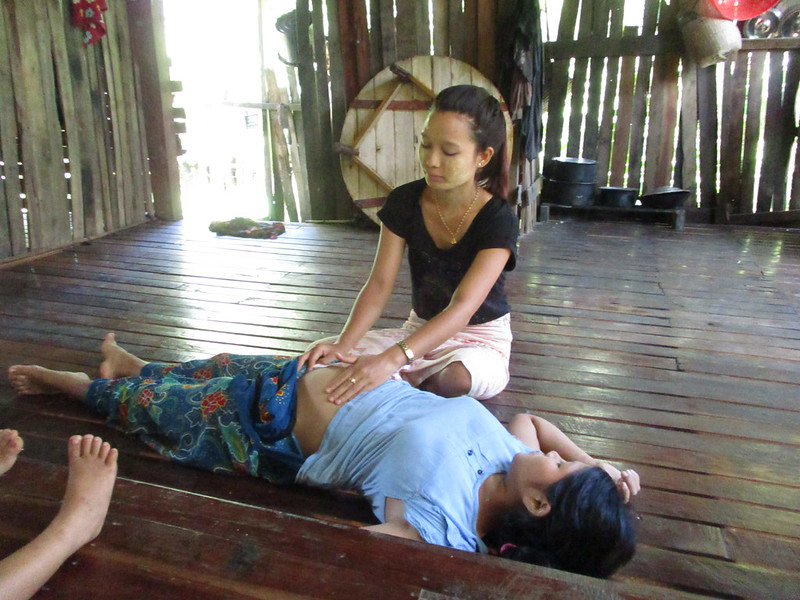
Since 1999, the U.S.–based Burma Humanitarian Mission (BHM) has partnered with the Back Pack Health Worker Team to provide health care to members of Myanmar’s oppressed and persecuted ethnic minorities. Teams of backpack medics, 75 percent of them women, from the ethnic minority Karen, Kachin, Shan, Pa’laung, Mon, Chin, and Rohingya communities, each travel to between nine and twelve villages each month, working with local village health volunteers and midwives to provide health care to people from their respective communities. Serving the most vulnerable areas of Myanmar, each team provides care to an estimated 2,000 people each year.
The regions where the medics carry out their work remain highly dangerous, particularly in northern Burma. As a result, many medics relocate their children to Mae Sot, Thailand, where the medics’ headquarters is located. There, a school and boarding facility called the Children’s Development Centre (CDC) provides education, housing, and other support for displaced children from Myanmar, from preschool through grade 12. The school fills a critical need, as authorities in Mae Sot do not permit migrant children from Myanmar to attend local schools.
This project will provide food and schooling for 55 children of medics living in Mae Sot. This year, the project will also fund basic medic training for fifteen women to become backpack medics as well as food support for 1,080 pregnant women. Annually renewable project.
This project is co-sponsored by BGR’s European sister organization, Mitgefühl in Aktion (MiA).

Since 1999, the U.S.–based Burma Humanitarian Mission (BHM) has partnered with the Back Pack Health Worker Team to provide health care to members of Myanmar’s oppressed and persecuted ethnic minorities. Teams of backpack medics, 75 percent of them women, from the ethnic minority Karen, Kachin, Shan, Pa’laung, Mon, Chin, and Rohingya communities, each travel to between nine and twelve villages each month, working with local village health volunteers and midwives to provide health care to people from their respective communities. Serving the most vulnerable areas of Myanmar, each team provides care to an estimated 2,000 people each year.
The regions where the medics carry out their work remain highly dangerous, particularly in northern Burma. As a result, many medics relocate their children to Mae Sot, Thailand, where the medics’ headquarters is located. There, a school and boarding facility called the Children’s Development Centre (CDC) provides education, housing, and other support for displaced children from Myanmar, from preschool through grade 12. The school fills a critical need, as authorities in Mae Sot do not permit migrant children from Myanmar to attend local schools.
This project will provide food and schooling for 55 children of medics living in Mae Sot. This year, the project will also fund basic medic training for fifteen women to become backpack medics as well as food support for 1,080 pregnant women. Annually renewable project.
This project is co-sponsored by BGR’s European sister organization, Mitgefühl in Aktion (MiA).




